A week has past since the visual/aural film experiences in the dark of the Castro Theatre. I am so thankful to have two amazing festivals here in San Francisco - the SF Silent Film Festival and Noir City. I don't want to get sidetracked though. I want to record my thoughts on Metropolis (Germany, 1927) and Häxan (Denmark/Sweden, 1922).
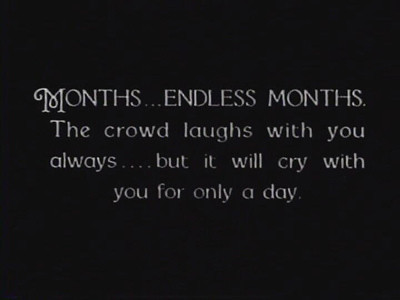
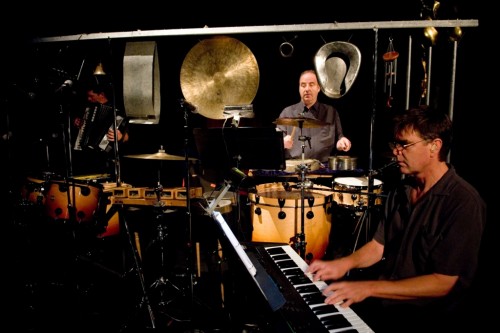
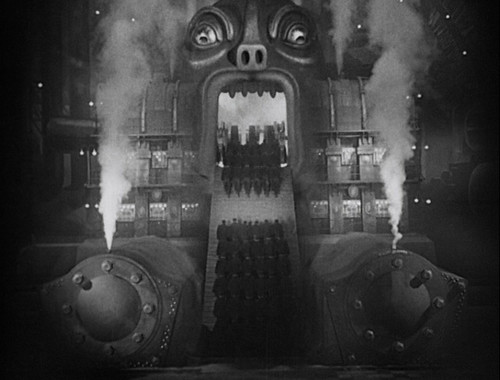
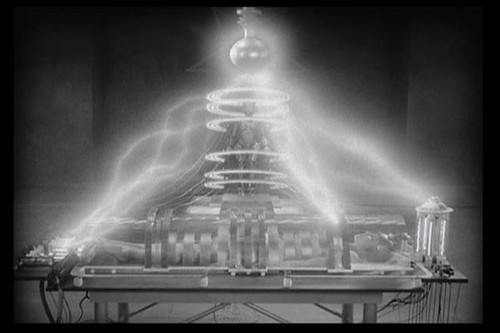
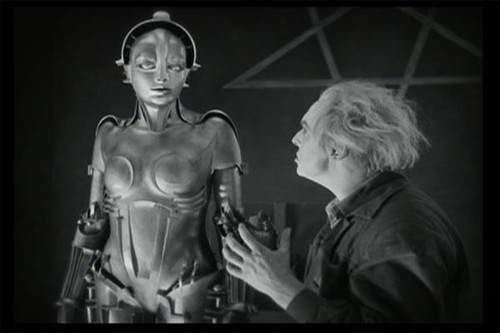
One more sidetrack, I made a correction just now to the Part I post. I was getting Man with a Movie Camera and Metropolis mixed up. I said MWMC was being re-released on DVD/Blu-Ray, but that's the new, complete version of Metropolis! The DVD of MWMC with the Alloy Orchestra score was released in 2002.
Like many people my first viewing of Metropolis was of the Georgio Moroder version on VHS. Although it pains myself and many a film aficionado to remember this version of the film because of the pop music soundtrack, I understand and applaud his work to introduce modern film audiences to silent film. Audiences, without the experience of watching wordless visuals and music, can benefit from the more obvious emotions of pop song lyrics to engage them and focus their attention. I was definitely in this camp of inexperienced silent viewers until I had more viewing practice. We're so used to the pairing of words and visuals in late 20th century media that it is a new skill to focus on the wordless. I say "wordless," but of course I mean no words heard aloud, as silent films do have silent text in the intertitles.

I venture a guess this title is from Lon Chaney's The Man Who Laughs (1928).
Back in, I believe, 1988, I saw Metropolis for the first time in a theater, at the Castro. While it was a revelation to see the film in a movie palace with live accompaniment, the score was horrific. The music competed with the film's pacing and broke up key sequences. During one key moment, when the main character Freder sees the deadly consequences of the class organization of their society, the orchestra began to tune their instruments for the next phase of their "score." It was terrible; I wished I could have turned them off as complete silence would have been better for the film than the jarring live score.
Fast forward to 2010 and the Alloy Orchestra. I couldn't help feeling an impending cloud over my head as the movie began; that my experience would be flawed, that I'd leave feeling disappointed. The sense of relief and excitement grew as each moment passed and the music was amazing. It so well supported the visuals and the emotions and the pacing. I simply can't gush enough about Alloy.

They worked so closely with the film that I was unable to tear my eyes away from the screen at any point and I was on the edge of my seat for 2 1/2 hours! It was easily one of the best film experiences ever.
It's already so late, and I have to get my day started, so thoughts of Häxan tomorrow. I can't leave without lingering a bit more on the astounding visuals in Metropolis (cinematography by Karl Freund, one noteworthy film he lit and shot is the lush and dark Dracula 1931).



No comments:
Post a Comment